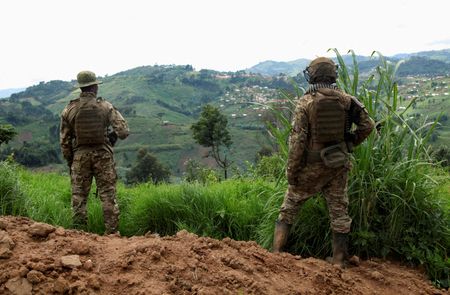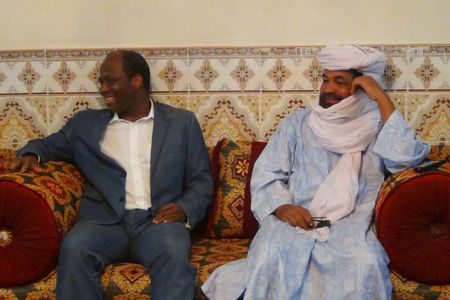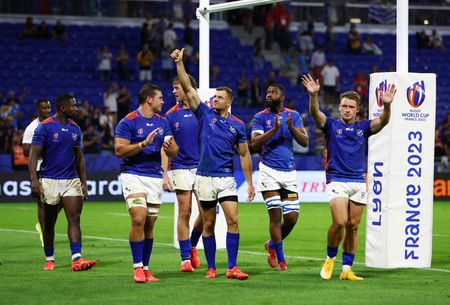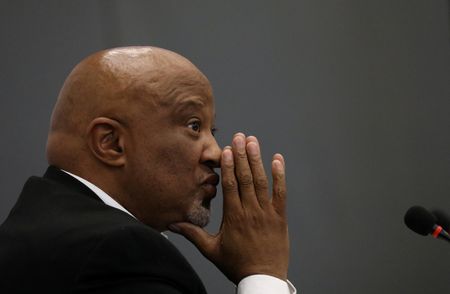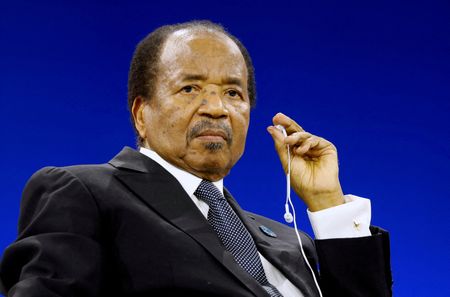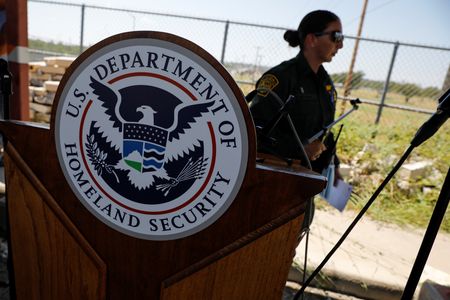By Sonia Rolley and Emma Farge
(Reuters) -Rwanda-backed M23 insurgents shot dead three boys who had picked up guns left by Congolese soldiers fleeing the rebel advance in eastern Congo, the U.N. said on Tuesday, adding the incident to a list of grave human rights violations reported during the conflict.
Videos circulating on social media showed children apparently aged between 11 and 15 using weapons and uniforms abandoned by Congolese troops, said Ravina Shamdasani, spokesperson for the U.N. human rights office in Geneva.
“Our office has confirmed cases of summary execution of children by M23 after they entered the city of Bukavu last week. We are also aware that children were in possession of weapons,” she said.
Citing what she described as reliable sources, Shamdasani said three boys were shot dead by M23 fighters in Bukavu’s Latin Quarter after refusing to put down guns they had collected from an abandoned army camp.
A spokesperson for a rebel alliance that includes M23 said on X the allegation was untrue and the boys had accidentally been killed by other boys misusing guns.
Separately, government forces and local militias have clashed south of Bukavu, the capital of South Kivu province, as troops fall back in the face of the M23 offensive, military sources and townsfolk say.
The troops and their militia allies were meant to pull back from Bukavu, a trading and mining industry hub, to avoid urban battles with the rebels and to dig in elsewhere to stall the rapid offensive, but the militias wanted to stand and fight.
By the time the rebels started moving into Bukavu over the weekend, the plan was unravelling into chaos, a Congolese general, a senior officer, a community leader, and several residents told Reuters.
Having already lost Congo’s main eastern city of Goma, near the Rwandan border, the forces deployed to defend Bukavu and its 1.3 million people hastily packed up and left.
Direct clashes with the M23 were largely avoided, but towns south of Bukavu then found themselves in the middle of firefights as pro-government militia fighters, known as the Wazalendo, tried to disarm or halt retreating or deserting Congolese soldiers.
“Just this morning there was the crackle of gunfire from Kamanyola to Uvira,” a community leader said on Monday, referring to towns on the N5 road south of Bukavu that have become flashpoints far from the front line with the M23.
“All the villages on road N5 are emptying,” he said.
The Congolese army did not immediately respond to requests for comment.
RIGHTS AND RESOURCES
The disorderly retreat and the ease with which the M23 rebels have overrun eastern Congo’s two major cities have stoked fears of a break-up of the country, a regional war that could drag in Uganda, and open talk in Kinshasa of a possible coup against Congolese President Felix Tshisekedi.
The rebels, backed by Rwanda, are led by ethnic Tutsis and say they are fighting for their rights.
Various militias are also vying for control of the region’s abundant mineral resources such as tantalum and cobalt, key components of electric vehicles, mobile phones and other technological products used across the world. Congo is also the top supplier of copper to China.
The Wazalendo, or Patriots, are a loose alliance of militias that are often poorly trained and undisciplined.
A video shared with Reuters by one resident appeared to show Wazalendo fighters in the N5 town of Sange handing out rifles to passersby from the back of a truck they had seized, along with its weapons, from the Congolese army.
Reuters could not immediately verify the footage. A security source and two civil society members confirmed such an incident took place.
“The Wazalendo…just keep messing up. The presidency rearmed all the armed groups thinking that these individuals would serve their cause,” a general in the army said, speaking on condition of anonymity.
It was not possible to contact a Wazalendo representative for comment.
“WE FLEE AGAIN”
The withdrawal from Bukavu without a fight has angered many Wazalendo in South Kivu, said Congolese researcher Josaphat Musamba, who is from the province.
“They are determined to fight…They don’t understand how the Congolese army can abandon them.”
But repeated battlefield losses had left soldiers demoralised, said a senior officer serving in the conflict zone, who spoke on condition of anonymity.
“The soldiers didn’t want to fight anymore. They were fleeing and looting,” he said.
Poor morale and indiscipline have repeatedly undermined the Congolese army’s fight against the M23 since the insurgency broke out in 2022, in a renewal of a conflict dating back to the 1990s genocide in neighbouring Rwanda.
“At the Bukavu stage, we flee again,” said one exasperated soldier in a video that showed large numbers of soldiers clambering onto an truck full of supplies.
The M23 insurgency has deepened an already dire humanitarian crisis in eastern provinces. Recent fighting has destroyed emergency shelters, leaving around 350,000 displaced people with no roof over their heads, the U.N. refugee agency says.
Rwanda rejects allegations from Congo, the United Nations, and Western powers that it supports M23 with arms and troops. It says it is defending itself against the threat from a Hutu militia, which it says is fighting with the Congolese military.
Congo rejects Rwanda’s complaints and says Rwanda has used its proxy militias to loot its minerals.
(Additional reporting by Congo newsroomWriting by Alessandra Prentice and Estelle Shirbon; Editing by Angus MacSwan and Nia Williams)

